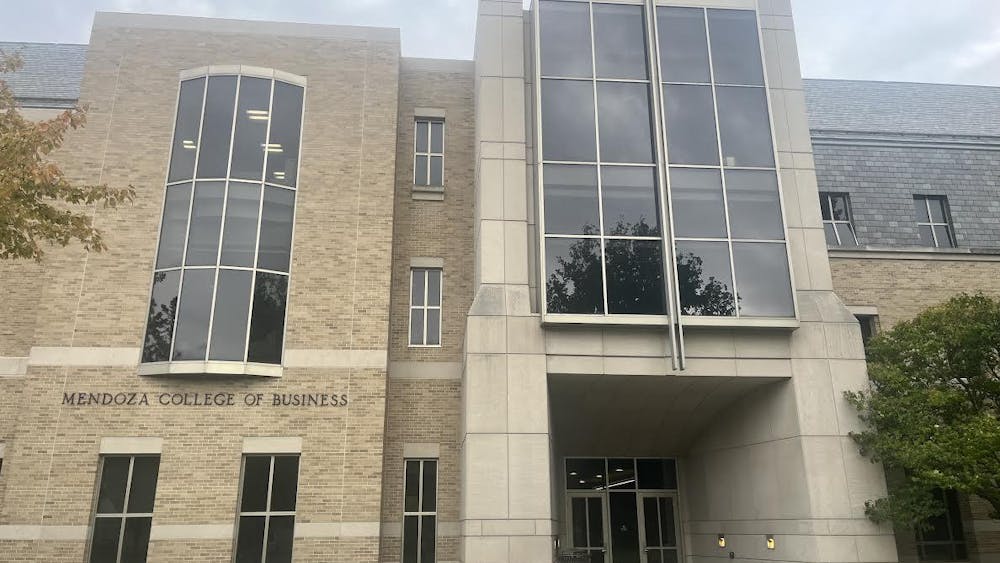Author, professor and activist Dr. Angela Davis was the keynote speaker at the 27th Annual Hesburgh Lecture in Ethics and Public Policy Tuesday, which honors former University President and founder of the Kroc Institute Rev. Theodore M. Hesburgh. During the virtual lecture, Davis discussed the struggles of economic, racial and gender justice.
The panel included moderator Dr. David Hooker, associate professor of peace studies, junior Duncan Donahue, Lenai Johnson, a first-year in the masters of global affairs program and Amaryst Parks-King, a second-year doctoral student in peace studies and sociology.
The lecture began with Hooker acknowledging Indigenous Peoples Day, which was Monday, and moved on to introduce the panelists and then Davis as a distinguished professor emerita of history of consciousness — an interdisciplinary Ph.D. program — and of feminist studies at the University of California Santa Cruz. Davis is also a well-known author, penning 10 books.
Davis said social movements such as the ones for racial justice and gender equality are fundamentally intertwined, and must be recognized as intersectional.
“Gender is race and race is gender,” Davis said.
Davis further emphasized the importance of intersectionality in environmental justice, saying that fighting climate change is the foundation for addressing other social issues.
“Environmental justice is the ground zero of all social movements,” Davis said.
Parks-King said Davis’ words are especially important during a year that the United States has been reckoning with racial injustice and systemic racism, in addition to a global pandemic that has disproportionally affected Black Americans.
“There has been so many unprecedented and precedented things that have been exacerbated by COVID and by anti-Blackness and racial injustice that this is a critical moment to engage with Angela Davis,” Parks-King said. “I hope that people are able to hear what she has to say … especially right now.”
The lecture also entertained some audience questions, such as the value in the educational system and the carceral state in Palestine. Johnson said the heightened social consciousness to issues such as these is crucial in moving forward to fight racial inequality.
“People are starting to engage more with world events and recognizing the interconnectedness of movements and struggles for freedom and recognizing how there is a shared colonial legacy along a lot of countries,” Johnson said. “In order to combat that, working together in these social movements and recognizing those similarities [becomes] essential.”
Toward the end of the lecture, Davis brought up capitalism and its contributions in cementing systemic racism in the United States and around the world. In order to talk about how capitalism has affected people of color, Davis said that we, as a society, need to learn how to talk about slavery.
“Colonialism and slavery were the foundations of capitalism,” Davis said.
Davis said abolition is important because simply placing diversity programs within firms is only an “invitation for minorities to participate in oppressive institutions,” rather than a solution to the structural oppression capitalism inherently presents.
The lecture ended with Hooker recognizing that we all subconsciously or consciously understand that the “carceral system is obsolete,” or the system of prisons that is part of the perpetuation of systemic racism and oppression in the United States. Americans, he said, need to proceed to “disentangle our minds and hearts from [that] system.”
Donahue said he hopes the lecture “help[s] bring more of these conversations that Angela Davis has been propagating her entire life to the campus community.”
Activist Angela Davis addresses economic, racial inequalities in annual Hesburgh Lecture
Dr. Angela Davis spoke to panelists from the University and answered audience questions on racial, gender and economic struggles.
Dr. Angela Davis spoke to panelists from the University and answered audience questions on racial, gender and economic struggles.









